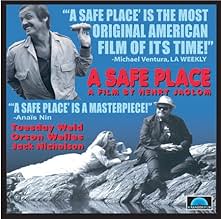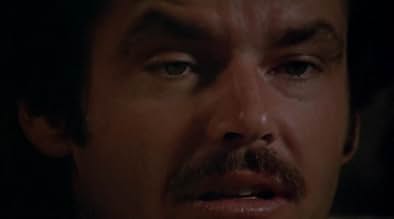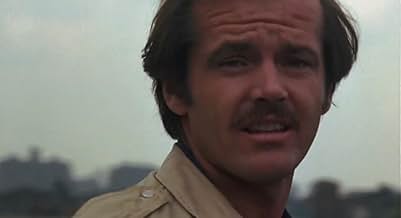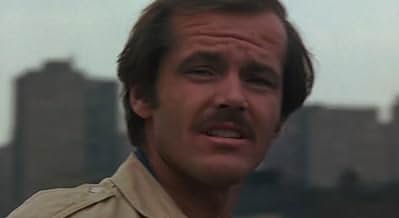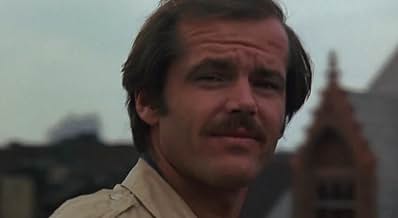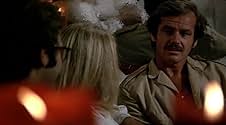IMDb RATING
4.9/10
1.4K
YOUR RATING
A strange young woman lives in a fantasy world where she can never grow up.A strange young woman lives in a fantasy world where she can never grow up.A strange young woman lives in a fantasy world where she can never grow up.
- Awards
- 1 nomination total
Phil Proctor
- Fred
- (as Philip Proctor)
Rachel Harlow
- Noah's Friend
- (as Richard Finnochio)
Wendy Girard
- Girl at the Party
- (uncredited)
- Director
- Writer
- All cast & crew
- Production, box office & more at IMDbPro
4.91.4K
1
2
3
4
5
6
7
8
9
10
Featured reviews
One of the worst motion pictures ever made
The title of my review is no exaggeration. The only saving grace to watching this movie is that it's only about an hour and a half in length, even though it seems at least twice that long to view. The screenplay (assuming there really was a screenplay to begin with, because the dialogue feels totally improvised...not because it sounds "real", but because it's strained and ludicrous) is annoying to the nth degree, unless you like hearing profound voice-over comments such as "I love you from New York to Rome..from Rome to Madrid, etc. etc. etc. over and over and over again. If I was on a deserted island with a DVD player and this was the only DVD I had with me, I'd break it in a hundred pieces with a coconut because, otherwise, I'd end up searching for a shark to eat me as soon as possible. If I had a choice between being water-boarded and being forced to watch this movie repeatedly, I'd have a VERY tough decision to make. But, other than that, the movie was great.
Helps to watch the interview on the DVD
The Criterion DVD and BluRay of this film contains a 2009 interview with writer/director Henry Jaglom that is worth watching after (or before) anyone views this film. This film is a definite product of its time and was released as part of the BBS wave that was taking Hollywood by storm in the late '60s and early '70s (Easy Rider, Five Easy Pieces, and Last Picture Show were some other films released during the BBS wave). Jaglom explains that his film was initially a play and the goal with his career (A Safe Place was his first movie) was to write and direct films that are from a woman's point-of-view. He continued to make very low budget films into the '00s (budgets lower than even John Sayles), including a few that starred his once-girlfriend Karen Black. This background helps understand this film, which is a unique watch but requires tremendous patience. Orson Welles' presence in the film is basically restricted to him channeling Topol, doing magic tricks in Washington Square, and commanding zoo animals to "disappear." Tuesday Weld is Susan (currently using the name Noah), an imaginative hippie who dwells on her childhood and falls into an unusual relationship with a stranger she meets in Central Park. Jack Nicholson arrives to stir the pot as Susan/Noah's ex. The film is more art than narrative and plays like an adult version of "Head," the Monkees movie that was also part of the BBS movement. A time capsule piece which will be more appreciated by independent American film lovers than the casual viewer.
A Safe Place Would Be Far Away From This Film
So, let me get this straight - if I have a taste for Fellini, Antonioni and Godard I'll feel right at home with A Safe Place? Um, no. I love Fellini, right up through 8 1/2. I've enjoyed much of Antonioni. Godard - a mixed bag for me, but I like Breathless and Alphaville fine, and Band Of Outsiders, too. Mr. Jaglom is not in their company, at least for me, and A Safe Place is a pretentious mess from start to finish. No one loves Tuesday Weld more than I, and she's fine. Jack Nicholson, who came in for a day and improvised everything is embarrassing. Gwen Welles gives new meaning to self-indulgent, but then again she has the most self-indulgent filmmaker imaginable "directing" her.
I have never met a Henry Jaglom film I liked - ever. And his "thing" that if you don't respond to his films then you don't understand women is, well, fatuous. I'm glad he considers himself such an enlightened and sensitive man, but I'm not buying nor are many of my women friends. It is the type of cinema that makes me want to throw up and not because I don't like experimental or interesting films, because I have and I do. As I sat there with drool running out of my mouth because I'd just invested what I thought was almost ninety minutes of my time, I paused the film to find out I was only at the forty-minute mark.
However, one has to commend any filmmaker who keeps on doing it - he does it with his own funds (good to be wealthy) and as long as he keeps having girlfriends he'll keep making films because his entire oeuvre is based on his love life.
I have never met a Henry Jaglom film I liked - ever. And his "thing" that if you don't respond to his films then you don't understand women is, well, fatuous. I'm glad he considers himself such an enlightened and sensitive man, but I'm not buying nor are many of my women friends. It is the type of cinema that makes me want to throw up and not because I don't like experimental or interesting films, because I have and I do. As I sat there with drool running out of my mouth because I'd just invested what I thought was almost ninety minutes of my time, I paused the film to find out I was only at the forty-minute mark.
However, one has to commend any filmmaker who keeps on doing it - he does it with his own funds (good to be wealthy) and as long as he keeps having girlfriends he'll keep making films because his entire oeuvre is based on his love life.
Confusing and able to grate on the viewer's nerves
A SAFE PLACE has certainly a bad reputation. It has a score of 4,9 that places it among Jack Nicholson's lowest rated movies, nearly all negative reviews and according to IMDB when it was shown at a film festival the audience became hostile and fights almost broke out because some loved it and some hated it. But not deterred, last October I finally saw it for seeing for myself if it was that bad and sadly I had to agree with nearly everyone.
Noah (Tuesday Weld) is a young woman that lives in her New York apartment. She is a flower child that retreats herself in her childhood memories in the search of a safe place while at the same time she dates two men: Fred who is practical but dull and Mitch (Nicholson) who is more dynamic and fit for her tho none of them can fulfill her passion, but at this point who cares?
To say that A SAFE PLACE is bad is just the tip of the iceberg. First, it's very disconnected and annoying at his worst because of the various jump cuts from a moment to the other. To get a sample of this we are shown moments of Noah in a hippie comune with snippets of a man only known as The Magician (Orson Welles) doing some magic tricks and even visiting a zoo.
Second, the acting is probably the laziest and when I say it, I mean that Megan Fox and Kristen Stewart are light years better than the cast in this movie. Tuesday Weld gives probably a prime example of sleepwalking acting as she is perpetually bored which seems difficult to do considering she is playing an immature girl. Only Nicholson was ok but his immense talent was wasted, same goes for Welles since we don't know what his motivations are or what was his purpose for appearing in this. Supporting cast? Forgettable on a whole.
Third, the pacing was so slow that the more time passes the more you'll end up asking yourself when the movie finally finishes. And as the movie ends you'll end up asking yourselves: What did I just saw? Did I missed something in the viewing? But in the end, these questions go by unanswered.
Overall, probably one of the worst art movies ever because of how much it's grating. My 2 would be only for Nicholson's performance and for the animals that appeared in the zoo scenes but for the rest, it's best to avoid as it would confuse most of you if you seek in a movie excitement and characters that look like real people.
Noah (Tuesday Weld) is a young woman that lives in her New York apartment. She is a flower child that retreats herself in her childhood memories in the search of a safe place while at the same time she dates two men: Fred who is practical but dull and Mitch (Nicholson) who is more dynamic and fit for her tho none of them can fulfill her passion, but at this point who cares?
To say that A SAFE PLACE is bad is just the tip of the iceberg. First, it's very disconnected and annoying at his worst because of the various jump cuts from a moment to the other. To get a sample of this we are shown moments of Noah in a hippie comune with snippets of a man only known as The Magician (Orson Welles) doing some magic tricks and even visiting a zoo.
Second, the acting is probably the laziest and when I say it, I mean that Megan Fox and Kristen Stewart are light years better than the cast in this movie. Tuesday Weld gives probably a prime example of sleepwalking acting as she is perpetually bored which seems difficult to do considering she is playing an immature girl. Only Nicholson was ok but his immense talent was wasted, same goes for Welles since we don't know what his motivations are or what was his purpose for appearing in this. Supporting cast? Forgettable on a whole.
Third, the pacing was so slow that the more time passes the more you'll end up asking yourself when the movie finally finishes. And as the movie ends you'll end up asking yourselves: What did I just saw? Did I missed something in the viewing? But in the end, these questions go by unanswered.
Overall, probably one of the worst art movies ever because of how much it's grating. My 2 would be only for Nicholson's performance and for the animals that appeared in the zoo scenes but for the rest, it's best to avoid as it would confuse most of you if you seek in a movie excitement and characters that look like real people.
A Safe Place
A strange young woman (Tuesday Weld) lives in a fantasy world where she can never grow up.
Henry Jaglom's directorial debut was a "critical and box-office disaster". Time magazine called the film "pretentious and confusing", a film that "suggests that the rumors of his expertise were greatly exaggerated, or at least that it does not extend to directing." Apparently, for the critics, not even the presence of the incredible Orson Welles or Jack Nicholson could save this one.
Author Anais Nin was perhaps the most kind. She called the film "an impressionistic film, an X ray of our psychic life, which gives an insight instantly into the secret self." She called it a "masterpiece", and praised it for its dreamlike quality that could only be captured on film.
Henry Jaglom's directorial debut was a "critical and box-office disaster". Time magazine called the film "pretentious and confusing", a film that "suggests that the rumors of his expertise were greatly exaggerated, or at least that it does not extend to directing." Apparently, for the critics, not even the presence of the incredible Orson Welles or Jack Nicholson could save this one.
Author Anais Nin was perhaps the most kind. She called the film "an impressionistic film, an X ray of our psychic life, which gives an insight instantly into the secret self." She called it a "masterpiece", and praised it for its dreamlike quality that could only be captured on film.
Did you know
- TriviaJack Nicholson appeared in this film mainly as a favor to director Henry Jaglom. Nicholson did the film for no pay, his only demand was that he be given a new color television set.
- GoofsThe opening credits read: "Introducing Jack Nicholson." Jack Nicholson had already appeared in 22! feature films before this one.
- Quotes
Opening Credits: Introducing Jack Nicholson
- Crazy creditsThe opening credits read: "Introducing Jack Nicholson." Jack Nicholson had already appeared in 22! feature films before this one.
- ConnectionsFeatured in Can She Bake a Cherry Pie? (1983)
- How long is A Safe Place?Powered by Alexa
Details
- Release date
- Country of origin
- Official site
- Language
- Also known as
- Ein Zauberer an meiner Seite
- Filming locations
- Production companies
- See more company credits at IMDbPro
- Runtime
- 1h 34m(94 min)
- Color
- Sound mix
- Aspect ratio
- 1.85 : 1
Contribute to this page
Suggest an edit or add missing content


